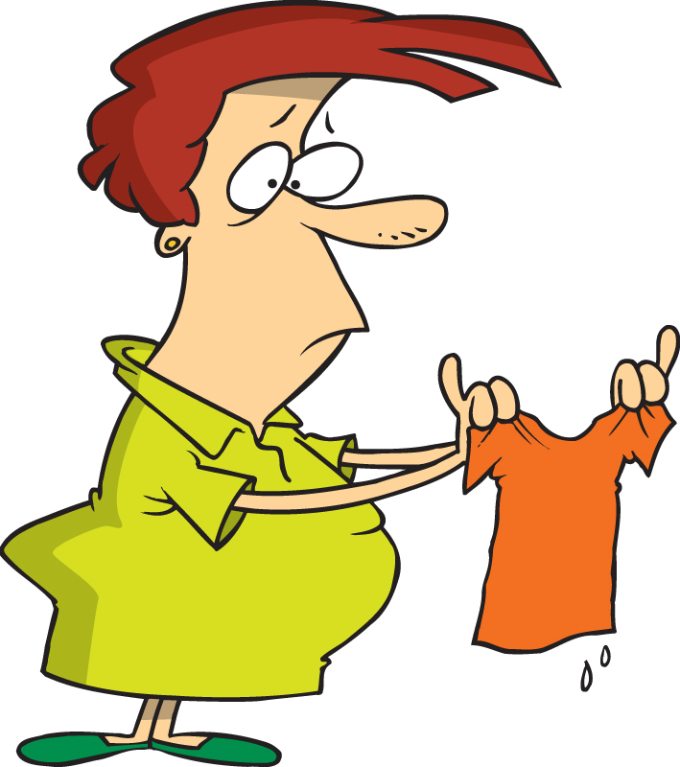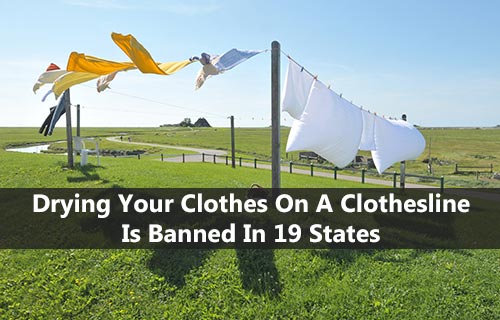Drying Your Clothes On A Clothesline Banned In 19 States
Make sure to like Living Green and Frugally on Facebook, Shop at Amazon to help support my site and explore our PINTEREST BOARDS for innovative ways you can become self-sufficient.
Did you know there are 19 states that have banned clotheslines? Have you ever heard of the Solar Rights Act? If you answered no to either question, you may want to read on.
Certainly, here’s the revised article including the list of states:
In an age where environmental consciousness is increasingly at the forefront of societal concerns, it may come as a surprise to many that 19 states in the United States have outright banned the use of clotheslines. Yes, you read that right – hanging your laundry out to dry is prohibited by law in certain regions of the country. But why, you might ask? And what does this have to do with the Solar Rights Act?
Firstly, let’s delve into the rationale behind these bans. Ostensibly, the prohibition of clotheslines stems from concerns related to property aesthetics and safety. Home Owner’s Associations (HOAs), ubiquitous in many American neighborhoods, often impose rules against visible clotheslines in an effort to maintain a certain standard of appearance. However, these regulations extend beyond the realm of HOAs; state-level bans have been instituted citing reasons such as potential decreases in property values and safety hazards, particularly concerning the risk of strangulation.
For many, the logic behind these bans appears paradoxical, if not downright counterintuitive. After all, the simple act of hanging clothes to dry is a quintessential example of eco-friendly behavior, directly contributing to energy conservation and reduction of carbon emissions. According to the U.S. Environmental Protection Agency (EPA), residential clothes dryers account for approximately 6% of total household electricity consumption. This translates to significant energy savings potential if more households were to embrace line drying as an alternative.
In fact, studies have shown that line drying can yield substantial environmental benefits. A report by the National Renewable Energy Laboratory (NREL) found that if all households in the United States were to switch from electric dryers to clotheslines for just half of their laundry loads, it could save up to 7.3 million metric tons of carbon dioxide emissions annually – the equivalent of removing 1.4 million cars from the road.

The states that have banned the use of clotheslines altogether include:
- California
- Florida
- Texas
- Colorado
- Utah
- Nevada
- Illinois
- Louisiana
- Maine
- Massachusetts
- North Carolina
- South Carolina
- Hawaii
- Oregon
- Washington
- Wisconsin
- Idaho
- Virginia
- Delaware
These states have implemented regulations citing reasons such as potential decreases in property values and safety hazards, leading to the prohibition of clotheslines.
Enter the Solar Rights Act – a legislative initiative aimed at challenging the legality of prohibitions on solar energy systems, including clotheslines, within HOAs and state regulations. Enacted in various forms across different states, these laws serve to protect homeowners’ rights to utilize renewable energy sources on their properties, unencumbered by restrictive covenants or zoning ordinances.
While the Solar Rights Act primarily targets solar panels, its underlying principles extend to encompass other solar-powered technologies, including clotheslines. By advocating for the rights of homeowners to harness solar energy in all its forms, proponents of the Solar Rights Act seek to dismantle barriers to sustainability and promote environmentally responsible practices.
Efforts to repeal clothesline bans have gained momentum in recent years, propelled by growing awareness of the environmental and economic benefits of line drying. Grassroots campaigns and advocacy groups have emerged to champion the cause, mobilizing support for legislative reform and raising public awareness about the issue.
In conclusion, the prohibition of clotheslines in 19 states stands as a stark reminder of the regulatory barriers that impede progress towards a more sustainable future. However, the emergence of initiatives such as the Solar Rights Act offers a glimmer of hope, providing a legal pathway for challenging and overturning restrictive regulations. By advocating for the rights of homeowners to harness solar energy in all its forms, we can pave the way for a more environmentally conscious and equitable society.
